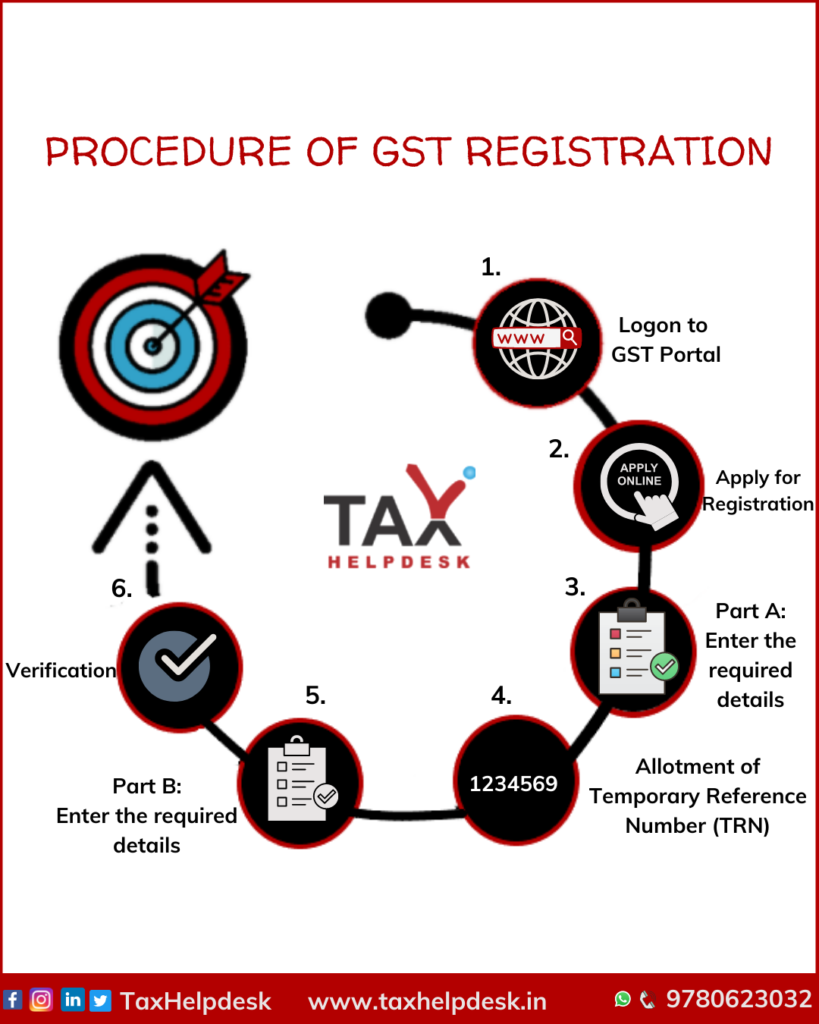Why CFO Account & Services is the Preferred Choice for GST Registration in Singapore
Why CFO Account & Services is the Preferred Choice for GST Registration in Singapore
Blog Article
Browsing the Complexities of GST Enrollment: A Comprehensive Guide for Service Owners
Navigating the complexities of GST registration can be a difficult task for several company proprietors, as it includes a myriad of regulations, policies, and processes that have to be adhered to. With the ever-evolving landscape of tax obligation laws, making certain compliance and comprehending the details of GST enrollment is important for the seamless procedure of any kind of company. From establishing qualification and gathering the essential documents to enhancing operations for optimal efficiency, this thorough guide aims to supply local business owner with the understanding and tools required to navigate the intricacies of GST registration efficiently.
Qualification for GST Enrollment
Service owners need to satisfy particular requirements to establish their eligibility for GST registration. In general, companies with a yearly turnover surpassing a specific limit are needed to register for Product and Solutions Tax Obligation (GST)
Moreover, companies that are registered under any type of previous tax obligation regimen, such as VAT or service tax obligation, are usually called for to change to GST enrollment. Recognizing these requirements is important for entrepreneur to guarantee conformity with the regulation and stay clear of any charges or lawful issues. It is a good idea for entrepreneurs to seek advice from with tax specialists or lawful consultants to evaluate their eligibility for GST registration precisely. By sticking to the required standards, businesses can smoothly navigate the complexities of GST registration and operate lawfully within the tax obligation structure.
Records Required for Registration
To complete the GST enrollment procedure, organizations require to collect and submit a detailed set of papers. The vital papers required for GST registration usually consist of proof of service registration or unification such as the Certificate of Consolidation, collaboration deed, or any other registration certification.
In addition, specific files connected to the nature of business, such as a listing of products or services supplied, HSN codes for items, and SAC codes for solutions, might be called for - Why choose CFO Account & Services for GST registration in Singapore. It is vital for organizations to make sure that all documents submitted are precise, updated, and in the recommended style to stay clear of any kind of hold-ups or complications in the GST registration procedure
Process of GST Registration
Having assembled the requisite documentation, businesses continue to initiate the GST registration procedure by involving with the on-line website assigned for registration. This online site is the Product and Services Tax Network (GSTN) portal, which serves as the key platform for all GST-related activities in India. Upon accessing the site, businesses are required to complete the GST registration kind with exact information regarding their organization activities, turn over, and various other relevant information.
As soon as the type is completed and submitted on the website, the GSTN validates the details provided by the service. The applicant may be required to give extra information Check Out Your URL or explanation if any type of disparities are discovered. Adhering to successful verification, a GST enrollment certificate is provided to business entity. This certification consists of a special Product and Services Tax Recognition Number (GSTIN) that is made use of for all GST-related transactions.
It is essential for companies to ensure that the info supplied throughout the GST enrollment procedure is accurate and approximately day to prevent any potential concerns or delays in obtaining the GST enrollment certification.
Recognizing GST Compliance

Companies need to be familiar with the numerous GST conformity demands based upon their turnover, nature of services or products, and the states in which they operate. It is important to stay updated on any type of changes in GST legislations and guidelines to stop any kind of non-compliance issues.
Non-compliance with GST laws can cause significant fines, penalties, and also legal effects. Organizations must spend time and sources in click to read more enlightening themselves and their personnel you could check here on GST compliance. Seeking professional help from tax advisors or professionals can likewise assist in navigating the complexities of GST conformity and guaranteeing that companies run within the lawful framework.

Tips for Optimizing Company Procedures
For boosted effectiveness and efficiency in company procedures, strategic planning and streamlined procedures are vital components. One pointer for optimizing business operations is to leverage modern technology properly.
One more crucial facet is focusing on tasks based on their importance and deadlines. By creating a clear pecking order of tasks and establishing practical timelines, organizations can ensure that crucial tasks are completed on time. Fostering a society of open interaction and partnership among team participants can lead to enhanced performance and technology.

Verdict
In conclusion, navigating the intricacies of GST enrollment requires a clear understanding of eligibility requirements, required records, enrollment processes, and compliance needs. By adhering to these guidelines and maximizing business operations, company proprietors can ensure smooth operations and conformity with the GST policies. It is crucial for organizations to remain enlightened and upgraded on GST guidelines to stay clear of any kind of charges or lawful problems.
The crucial papers needed for GST registration typically consist of proof of service enrollment or unification such as the Certification of Unification, collaboration action, or any type of various other registration certificate.Having actually put together the requisite paperwork, businesses continue to launch the GST registration procedure by involving with the on-line site assigned for registration. Upon accessing the website, businesses are called for to fill out the GST registration form with accurate details concerning their service activities, turn over, and other pertinent info.
In order to maintain adherence to GST regulations and stay clear of fines, organizations should prioritize recognizing GST compliance. By adhering to these guidelines and optimizing organization operations, service proprietors can ensure smooth operations and compliance with the GST policies.
Report this page